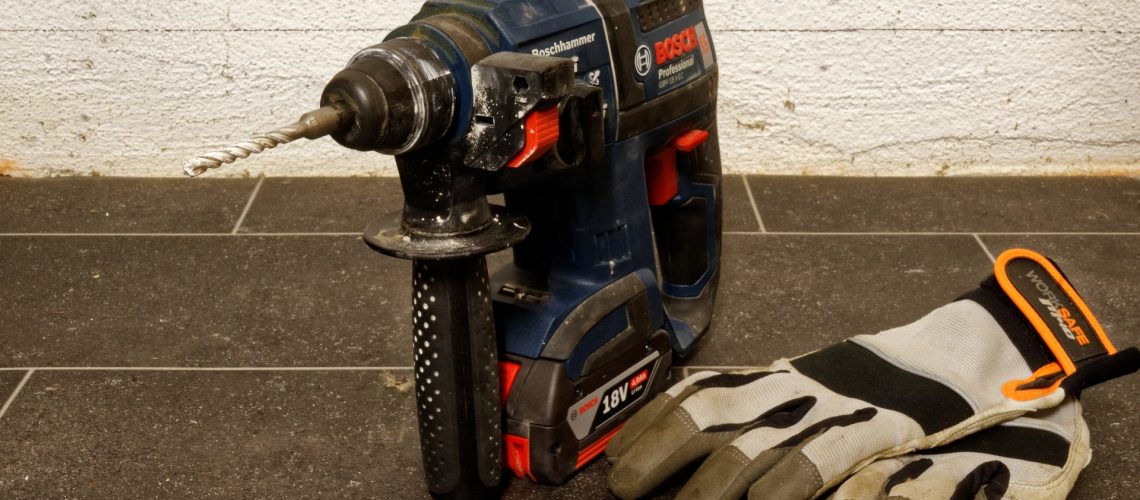Our work claims team secured compensation for Scott after a working drill entered his arm while installing a fence at a power station.
Scott explains: “I was subcontracted to the employer as a self-employed worker, and our small team on site were tasked with drilling holes into the top of metal posts around the perimeter of the power station so that a barbed wire fence could be installed.”
As pallets and other materials had not been cleared on the inside of the fence, he would have to access the posts from a platform on uneven ground on the outside of the station perimeter and with his arms working between gaps in the metal fence.
Equipment not up to the job
On starting the job, Scott found that the small, battery-powered hand drill he had been provided with to drill the pilot holes wasn’t powerful enough to get through the posts, especially given the awkward position he had to negotiate to get sufficient purchase. The site supervisor left in the van to obtain new equipment.
“The next drill was at the other end of the spectrum,” says Scott. “It was heavy, required the use of two hands and was difficult to control in the circumstances.”
Scott had to put his hands through the fence and force the large drill into the pilot hole. In doing so, the power and weight of the drill forced his left arm to drop as the drill bit came through the fence post. The drill went through his overalls and into the inside of his left arm just below the elbow. A colleague turned off the generator, undid the chuck and loosened the drill bit so it could be disentangled from Scott’s overalls.
Two-night hospital stay
Scott was taken to hospital immediately. “I was fortunate in a way that the power of the spinning drill had effectively cauterized the main wound.” he says. A dressing was applied and Scott was kept in for two nights for observation before being discharged with antibiotics.
On leaving hospital, his working hours weren’t significantly disrupted but the tasks he could undertake were restricted for a short time and he would be left with two small but noticeable permanent scars.
We get to work
Scott came to us; we collated all the necessary details and evidence and submitted the claim, referencing the relevant legislation. Following their investigation, the Defendant’s insurer denied liability on the basis that the task had been risk assessed and the drill was not defective. Their position at this stage was that the accident occurred due to operator error.
Undeterred, we obtained medical evidence and expressed our intention to issue proceedings. Our opinion remained that Scott had a strong case, chiefly because:
- The risk assessment for the task completed beforehand was inadequate
- There was evidence that concerns had been raised about drilling on a platform from the wrong side of the fence
- The suitability of the drill which he had eventually been provided to carry out the job had not been assessed
The Defendant insurer revised their position and we negotiated an award of £6,500 for Scott, who says:
“I would just like to thank you for all your efforts in getting my claim settled. I am very satisfied with the speed of settlement, and the outcome.”
Whatever your employment status, we’re here to help if you’re injured when an employer fails in its duty of care to you. To speak to one of our friendly team, call 0161 713 5575 or get in touch online.


